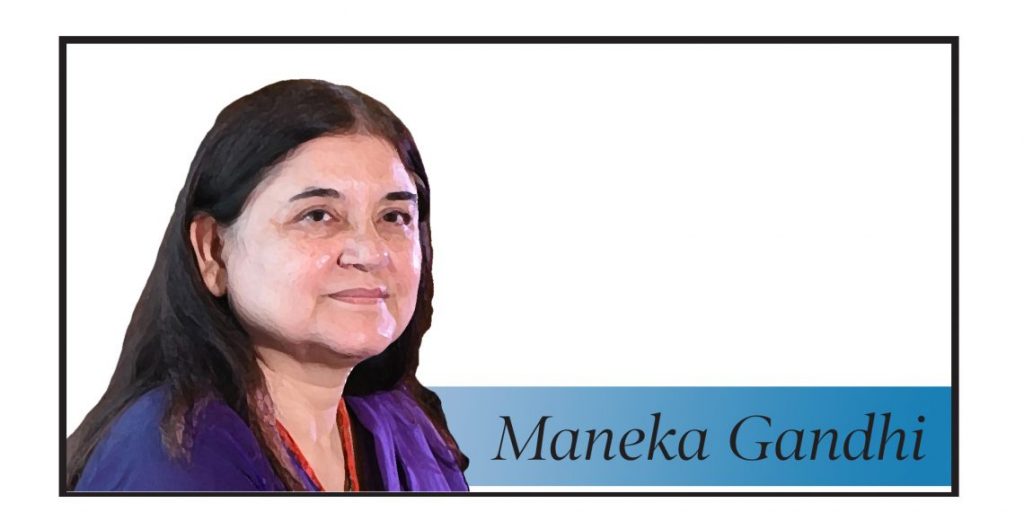Rosamund Young has written a book called the Secret Life of Cows which, surprisingly for a book on animals, has shot to the Top Ten bestseller list of the Sunday Times. It’s a small book about the animals she has brought up and interacted with, specially cows, in her Kitt’s Nest farm in England. She has treated them with kindness and consideration, kept them in as natural conditions as possible.
Rosamund describes her relationship with each cow. “Cows are as varied as people” she writes. “They can be highly intelligent or slow to understand, vain, considerate, proud, shy or inventive. Although much of a cow’s day is spent eating, they always find time for activities such as baby sitting, playing hide and seek, or looking for berries.” They look for happiness in the warmth of their own families. Grandmothers step in when mothers need a break from feeding, calves make best friends and share treats, cows literally jump in the air – all four feet – when happy and excited.
The writer describes how cows in trouble come to her or her brother at their house and tell them when they are about to calve, or when they are not feeling well, so that they can be helped. They know their own names and come from far when called. They stare when they want something, looking from you to the object they want you to see till you understand.
Cows have different kinds of moos — voices like ours. Mooing in a loud agitated way could mean that the mother is looking for her calf. Fear, disbelief, anger, hunger or distress – all of them have different sounds and a low quiet moo means she is asking you a question.
Cows tell the difference between people, remember people who have been kind to them and nurse grudges. They are easily offended and will ignore you forever until you try very hard to make friends again. But ultimately, they are forgiving. They make friends for life. If you choose to see a cow the way you see your dog, she can be very good company.
Cows love each other, have friends and enemies. They communicate with people – if you are willing to listen. They like music. They are problem- solvers – which means they have a high degree of intelligence. The cows in my hospital Sanjay Gandhi Animal Care Centre find out how to open the gates of their pens and come out when they feel like. They have food preferences.
Cows are good mothers. They will lick their children all over as a calming grooming gesture. One cow which came to us had given birth and suffered a prolapse – when the uterus fell out because of the pressure of birthing. She was in dreadful pain having been lying on the road for two days with the newborn calf. But her eyes never left her baby even while she was being stitched up and the baby was being bottle fed. When she recovered, she went back to feeding her daughter.
Bovine needs are in many respects the same as of the humans: freedom from stress, adequate shelter, pure food and water, liberty to exercise, to wander about, to go for a walk, or just to stand and stare. Every animal needs the congenial company of its own species; and a cow needs to be allowed to enjoy her “rights” in her own way. If any sense of fear is aroused, then none of the cows will sleep. If the source of fear is remote, cows will communicate to the calves that they can sleep while the older animals keep guard.
We are the only country in the world that treats cows as special, invests them with a religious significance and makes special shelters called gaushalas for them. But, because we don’t recognize the cow as a thinking individual, even the gaushalas become simply prisons for cows. They have no names and no individual recognition. I have, in collaboration, written the only manual in India on gaushalas and we have a chapter on what cows like and what they fear, how to approach them and how to recognize their moods.
Even the people who keep a few cows in their homes, who should know better about their personalities, don’t bother to be nice to them or even understand them. They are kept tied most of the day, milked, their children separated at birth and tied a few unattainable feet away from their mothers. It is easier to assume that an animal has no feelings. They are treated simply as generators of profit without any thought to their needs. And yet, the same person will go into his house and worship the small idol of the cow he keeps on his puja table.
This book should be made compulsory reading in schools, especially for people who have the compassion to run gaushalas. If animals are to survive, people must realize that these are us, just in another form. Anyone who eats an animal is eating himself.
To join the animal welfare movement contact gandhim@nic.in, www.peopleforanimalsindia.org.
